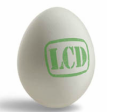Protein on a Low-Carb Diet: Too Much? Too Little?
Dr. Rosedale recommends only 0.8-1.0 grams per kilogram of body weight (He has said he sometimes recommends as little as 0.6 g/kg for people with diabetes). Dr. Bernstein is a bit more liberal, allowing his patients as much protein as they would like per meal while cautioning that too much may increase blood glucose levels and lead to weight gain due to increased gluconeogenesis in people with diabetes (It should be noted that he is a fan of small portions of just about everything, including vegetables). Most low-carb research has been conducted with protein intake of 25-30% of total calories (125-150 grams per day on 2000 calories per day) . Dr. Phinney and Dr. Volek have advised eating around 1.5 grams protein per kilogram of body weight, and up to 2.5 g/kg for athletes. Despite having written a best-selling book called Protein Power, Drs. Mike and Mary Eades set protein requirement at a modest 0.6 grams per pound of lean body mass for a moderately active person (about 70 grams protein per day for someone weighing 157 lbs with 24% body fat).
I’ve read a lot of research that supports higher protein intake with carbohydrate restriction. It would logically support weight loss/improvement in body composition due to protein’s higher thermic effect (the amount of calories burned from its digestion and processing), satiety factor (higher than fat and carbohydrate), and ability to promote increased muscle mass. People attempting to build muscle via resistance training will benefit by increasing protein intake to support anabolism, particularly on a low-carb diet.
The available research indicates moderate to high protein intake may be beneficial for people with diabetes. In a long-term study of T2’s, protein intake of 30% on an 1800-calorie diet (about 135 grams a day), resulted in improvements in blood sugar control and weight. However, it is unknown whether this is universal among all T2s, and T1s are a different story altogether. Although a recent study found that significantly higher protein intake at meals does not result in an increase in blood glucose levels in those with T1 diabetes, the anecdotal evidence from many people suggests otherwise. I’ve had several reports from T1s about blood glucose spikes after zero-carb high-protein meals.
If you’re confused after hearing all of these conflicting recommendations, you’re in good company. I’m a dietitian, and I struggle with making protein recommendations because the ideal amount seems to be so highly individualized. To me, it seems better to err on the side of getting a little more protein than required versus not enough. My diet contains a moderate amount of animal protein — probably 60-65 grams a day — but I do get a fair amount from plants as well. I eat a lot of nuts and nut butters, and the several servings of vegetables I consume contain some protein. When I input an average day’s intake into FitDay, my total protein is usually close to 100 grams. That comes out to about 1.75 grams/kilogram based on my weight, which is almost double Dr. Rosedale’s recommendation. However, my blood sugars remain stable as long as I keep carbs low, and my weight stays exactly where I want it. Based on everything I’ve read, I wouldn’t recommend less than 1 g/kg or more than 2 g/kg ,* but that’s obviously a huge range. Some do better at the lower end, while others thrive at the top depending on their fitness goals and unique physiological makeup. As with everything else, I think self-experimentation (monitoring blood sugar and/or weight, appetite, energy levels, body composition, etc.) is key to finding the optimal protein intake for you.
* protein g/kg based on current weight if at or near ideal weight. If overweight or obese, use g/kg ideal weight. There are many charts online, but I use the Hamwi formula:
Men: 106 lbs plus 6 lbs for every inch over 5 feet (add or subtract 10% for large and small frames, respectively)
Women: 100 lbs plus 5 lbs for every inch over 5 feet (add or subtract 10% for large and small frames, respectively)
References:
1. Gannon M, et al. Effect of a high-protein, low-carbohydrate diet on blood glucose control in people with type 2 diabetes. Diabetes. 2004 Sep;53(9):2375-82
2. Nielsen J, et al. Low-carbohydrate diet in type 2 diabetes: stable improvements of body weight and glycemic control during 44 months follow-up. Nutr Metab (Lond) 2008; 5:14
3. Borie-Swinburn C, et al. Effect of dietary protein on postprandial blood glucose in patients with type 1 diabetes. J Hum Nutr Diet.2013 Mar 22. DOI: 10.1111/jhn.12082


Have you seen this one?
https://zooko.com/file/URI%3ACHK%3Awu4sfbq75t3l55ec3cknvs5d2i%3Aug42xrtxdhdkb4wlfkg7shsz4nykpi4enqgf6oofw5jp4yebnola%3A1%3A1%3A341354/@@named=/Elango-2010-Evidence_that_protein_requirements_have_been_significantly_underestimated.pdf
And also did you read Amber’s detailed explorations on http://ketotic.org? The final take-away of those detailed explorations, for me, was: I’m still confused about the effect of protein on blood glucose levels. :-/
Hi Zooko,
No, I haven’t read that study. Thanks so much for the link — I’ll definitely read it.
Yes, I read Amber’s excellent blog posts on gluconeogenesis, ketogenesis, and protein’s affect on blood sugar. I’m still confused as well! I tend to think higher protein, unless significantly greater than needs, doesn’t have much effect on those with normal endocrine function and can confer other benefits but can result in hyperglycemia in people with T1 diabetes. The science is fascinating but complicated. Tell Amber to keep up the great work 🙂
Thanks for posting this subject. I’m as confused as everyone on protein requirements & it doesn’t seem that a definitive answer is going to happen any time soon.
I’m T1 & LC. My experience bears out spikes from protein. No doubt about that. Interestingly, the effect is more pronounced the longer I eat LC. Either my body’s become more gluconeogenesis efficient, or perhaps I’m just more insulin resistant.
Thank you so much for your comments, Gerri. As I said above, T1s have particular challenges with respect to protein, and the response apparently isn’t consistent. Difficult to know what’s going on in our bodies without an internal camera to capture the various hormonal feedback mechanisms that occur.
True there’s a lot of conflicting reports on what amount of protein is good and what’s not good for you.I go with what you pointed out after that-that self-experimentation is good if you ever find yourself in this dilemma like Zooko.